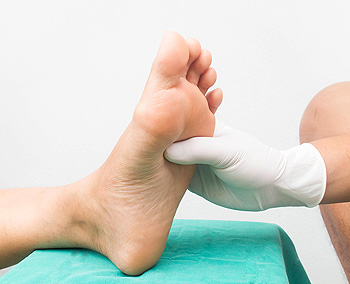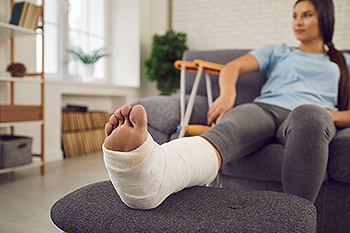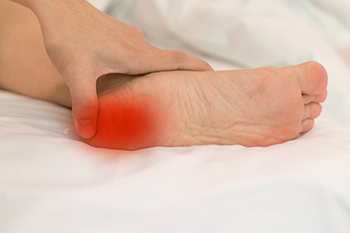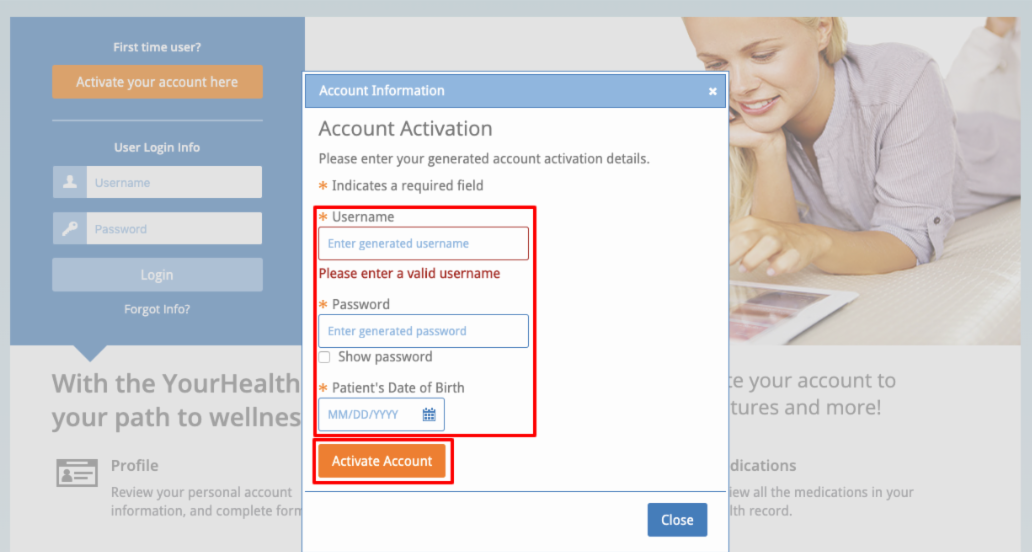Connect With Us
Blog
Items filtered by date: December 2023
Do You Suffer From Painful Feet?
Foot Conditions Caused by Pregnancy

Pregnancy is a transformative journey, both physically and emotionally. While many anticipate changes in their bodies, some may not be aware of the potential foot conditions that can arise during this time. One common issue is edema, or swelling of the feet and ankles, which results from increased blood volume and the pressure on leg veins. This can cause discomfort, but it is often temporary. Another condition linked to pregnancy is flat feet. Hormonal changes during pregnancy can affect the ligaments in the feet, leading to a decrease in arch height. This can contribute to foot pain and discomfort. Additionally, weight gain can place added stress on the feet, often causing pain and fatigue. The expanding uterus may also shift the center of gravity, altering the gait and potentially causing problems like plantar fasciitis. Pregnancy can bring about various foot challenges, but with proper care, many of these issues can be managed or prevented. If you have developed any type of foot conditions during your pregnancy, it is suggested that you schedule an appointment with a podiatrist who can monitor any foot pain or discomfort you may be experiencing.
Pregnant women with swollen feet can be treated with a variety of different methods that are readily available. For more information about other cures for swollen feet during pregnancy, consult with Imaze Marian Davis, DPM from Marian Davis, DPM, PA. Our doctors will attend to all of your foot and ankle needs.
What Foot Problems Can Arise During Pregnancy?
One problem that can occur is overpronation, which occurs when the arch of the foot flattens and tends to roll inward. This can cause pain and discomfort in your heels while you’re walking or even just standing up, trying to support your baby.
Another problem is edema, or swelling in the extremities. This often affects the feet during pregnancy but tends to occur in the later stages.
How Can I Keep My Feet Healthy During Pregnancy?
- Wearing orthotics can provide extra support for the feet and help distribute weight evenly
- Minimize the amount of time spent walking barefoot
- Wear shoes with good arch support
- Wear shoes that allow for good circulation to the feet
- Elevate feet if you experience swelling
- Massage your feet
- Get regular, light exercise, such as walking, to promote blood circulation to the feet
If you have any questions please feel free to contact our office located in Miami, FL . We offer the newest diagnostic and treatment technologies for all your foot and ankle needs.
Managing Diabetic Neuropathy

Diabetic neuropathy, a consequence of prolonged elevated blood sugar levels in individuals with diabetes, affects up to 50 percent of those with the condition. Symptoms of diabetic neuropathy range from pain, tingling, and numbness in the extremities to potential onset without noticeable signs. Peripheral diabetic neuropathy is prevalent, causing discomfort in the toes, feet, and hands. Early diagnosis is essential, and a thorough examination by a podiatrist is suggested. This process can include a foot check for sores and ulcers, along with tests such as the monofilament test, nerve conduction tests, and electromyography. Effective management of diabetic neuropathy involves strict control of blood sugar levels through regular monitoring, adherence to an antidiabetic diet, physical activity, and routine blood pressure checks. Medications can also play a vital role in relieving symptoms. If you have diabetes, it is suggested that you are under the care of a podiatrist can help you to manage this condition.
Diabetic foot care is important in preventing foot ailments such as ulcers. If you are suffering from diabetes or have any other concerns about your feet, contact Imaze Marian Davis, DPM from Marian Davis, DPM, PA. Our doctors can provide the care you need to keep you pain-free and on your feet.
Diabetic Foot Care
Diabetes affects millions of people every year. The condition can damage blood vessels in many parts of the body, especially the feet. Because of this, taking care of your feet is essential if you have diabetes, and having a podiatrist help monitor your foot health is highly recommended.
The Importance of Caring for Your Feet
- Routinely inspect your feet for bruises or sores.
- Wear socks that fit your feet comfortably.
- Wear comfortable shoes that provide adequate support.
Patients with diabetes should have their doctor monitor their blood levels, as blood sugar levels play such a huge role in diabetic care. Monitoring these levels on a regular basis is highly advised.
It is always best to inform your healthcare professional of any concerns you may have regarding your feet, especially for diabetic patients. Early treatment and routine foot examinations are keys to maintaining proper health, especially because severe complications can arise if proper treatment is not applied.
If you have any questions please feel free to contact our office located in Miami, FL . We offer the newest diagnostic and treatment technologies for all your foot and ankle needs.
Types of Ankle Fractures

Ankle fractures, involving breaks in the bones forming the ankle joint, vary in location and severity. A lateral malleolus fracture occurs in the fibula, which is the smaller leg bone, and is the most frequent type of ankle fracture. Medial malleolus fractures affect the tibia's inner side, while a posterior malleolus fracture involves the back of the tibia. Bimalleolar fractures involve both the medial and lateral malleoli, and trimalleolar fractures include the posterior malleolus as well. Pilon fractures are severe, affecting the bottom of the tibia and potentially damaging the ankle joint's surface. Stress fractures, resulting from repetitive stress rather than a single injury, are minor cracks in the bone. Each type of ankle fracture varies in treatment and recovery, with severity ranging from simple breaks that may heal with rest and immobilization to complex fractures requiring surgical intervention. If you have fractured your ankle, it is strongly suggested that you schedule an appointment with a podiatrist who can determine the type and severity of the break, and provide appropriate treatment options.
Broken ankles need immediate treatment. If you are seeking treatment, contact Imaze Marian Davis, DPM from Marian Davis, DPM, PA. Our doctors can provide the care you need to keep you pain-free and on your feet.
Broken Ankles
A broken ankle is experienced when a person fractures their tibia or fibula in the lower leg and ankle area. Both of these bones are attached at the bottom of the leg and combine to form what we know to be our ankle.
When a physician is referring to a break of the ankle, he or she is usually referring to a break in the area where the tibia and fibula are joined to create our ankle joint. Ankles are more prone to fractures because the ankle is an area that suffers a lot of pressure and stress. There are some obvious signs when a person experiences a fractured ankle, and the following symptoms may be present.
Symptoms of a Fractured Ankle
- Excessive pain when the area is touched or when any pressure is placed on the ankle
- Swelling around the area
- Bruising of the area
- Area appears to be deformed
If you suspect an ankle fracture, it is recommended to seek treatment as soon as possible. The sooner you have your podiatrist diagnose the fracture, the quicker you’ll be on the way towards recovery.
If you have any questions, please feel free to contact our office located in Miami, FL . We offer the newest diagnostic and treatment technologies for all your foot care needs.
Parental Guidance for Children Who Have Sever’s Disease

Parental guidance is vital for families with children experiencing Sever's Disease, a common condition affecting the heels of children during growth spurts. First and foremost, it is essential to educate yourself and your child about what Sever's Disease is, and what causes it. By providing age-appropriate information, you can reduce any anxiety your child may have about the condition. One important aspect of managing Sever's Disease is ensuring that your child wears comfortable, supportive shoes with proper arch support. Avoiding flat or poorly cushioned footwear may help to alleviate discomfort. Encourage your child to take breaks and rest, especially during strenuous activities involving running or jumping. Performing gentle calf and Achilles tendon stretches can also promote flexibility and reduce tightness. Support your child with the knowledge that symptoms are likely temporary and resolve when the heel’s growth plate matures. If your child is experiencing heel pain, it is suggested that you make an appointment with a podiatrist who can provide a proper diagnosis and treatment plan.
Sever's disease often occurs in children and teens. If your child is experiencing foot or ankle pain, see Imaze Marian Davis, DPM from Marian Davis, DPM, PA. Our doctors can treat your child’s foot and ankle needs.
Sever’s Disease
Sever’s disease is also known as calcaneal apophysitis, which is a medical condition that causes heel pain I none or both feet. The disease is known to affect children between the ages of 8 and 14.
Sever’s disease occurs when part of the child’s heel known as the growth plate (calcaneal epiphysis) is attached to the Achilles tendon. This area can suffer injury when the muscles and tendons of the growing foot do not keep pace with bone growth. Therefore, the constant pain which one experiences at the back of the heel will make the child unable to put any weight on the heel. The child is then forced to walk on their toes.
Symptoms
Acute pain – Pain associated with Sever’s disease is usually felt in the heel when the child engages in physical activity such as walking, jumping and or running.
Highly active – Children who are very active are among the most susceptible in experiencing Sever’s disease, because of the stress and tension placed on their feet.
If you have any questions, please feel free to contact our office located in Miami, FL . We offer the newest diagnostic and treatment technologies for all your foot and ankle injuries.



